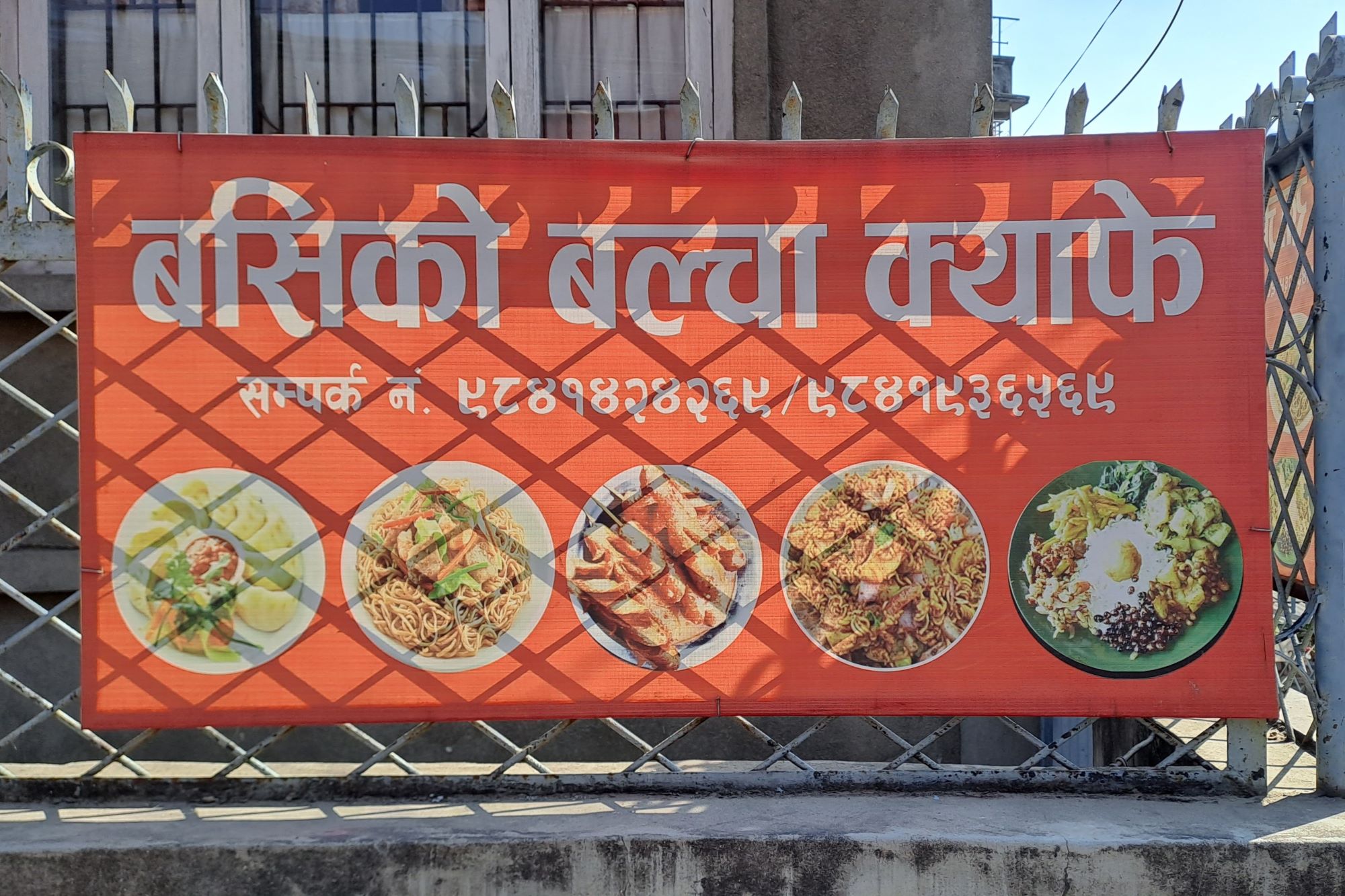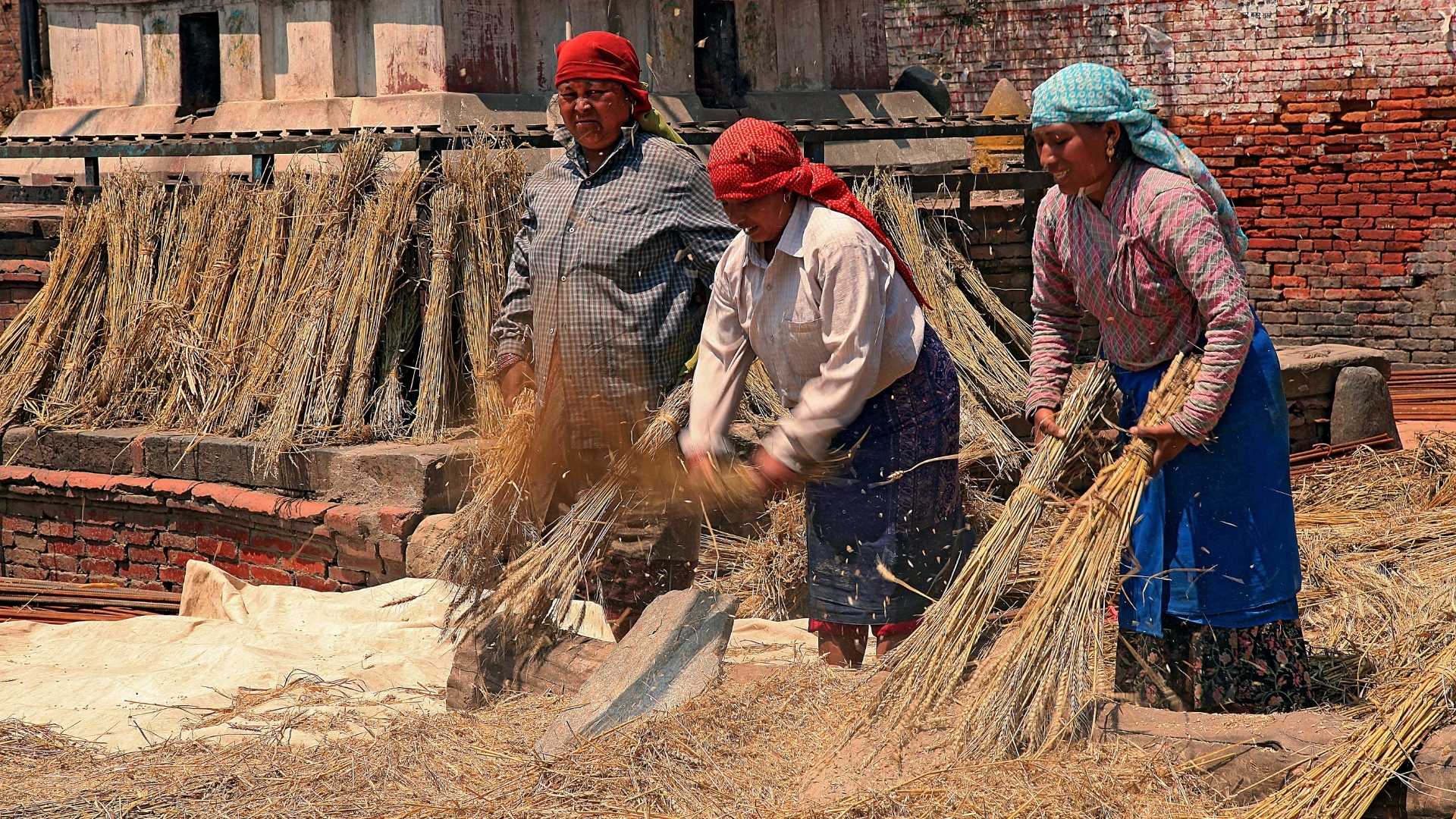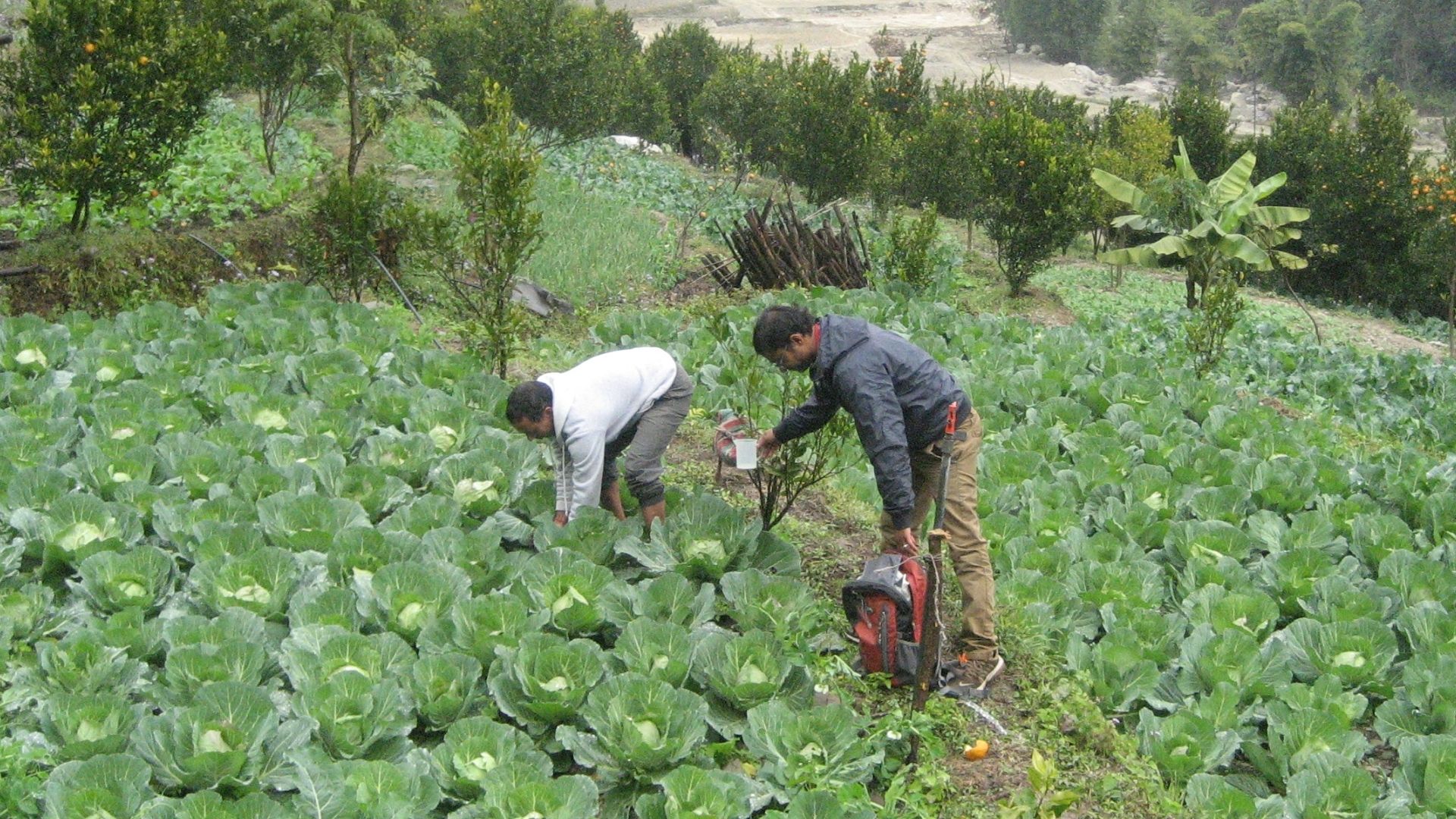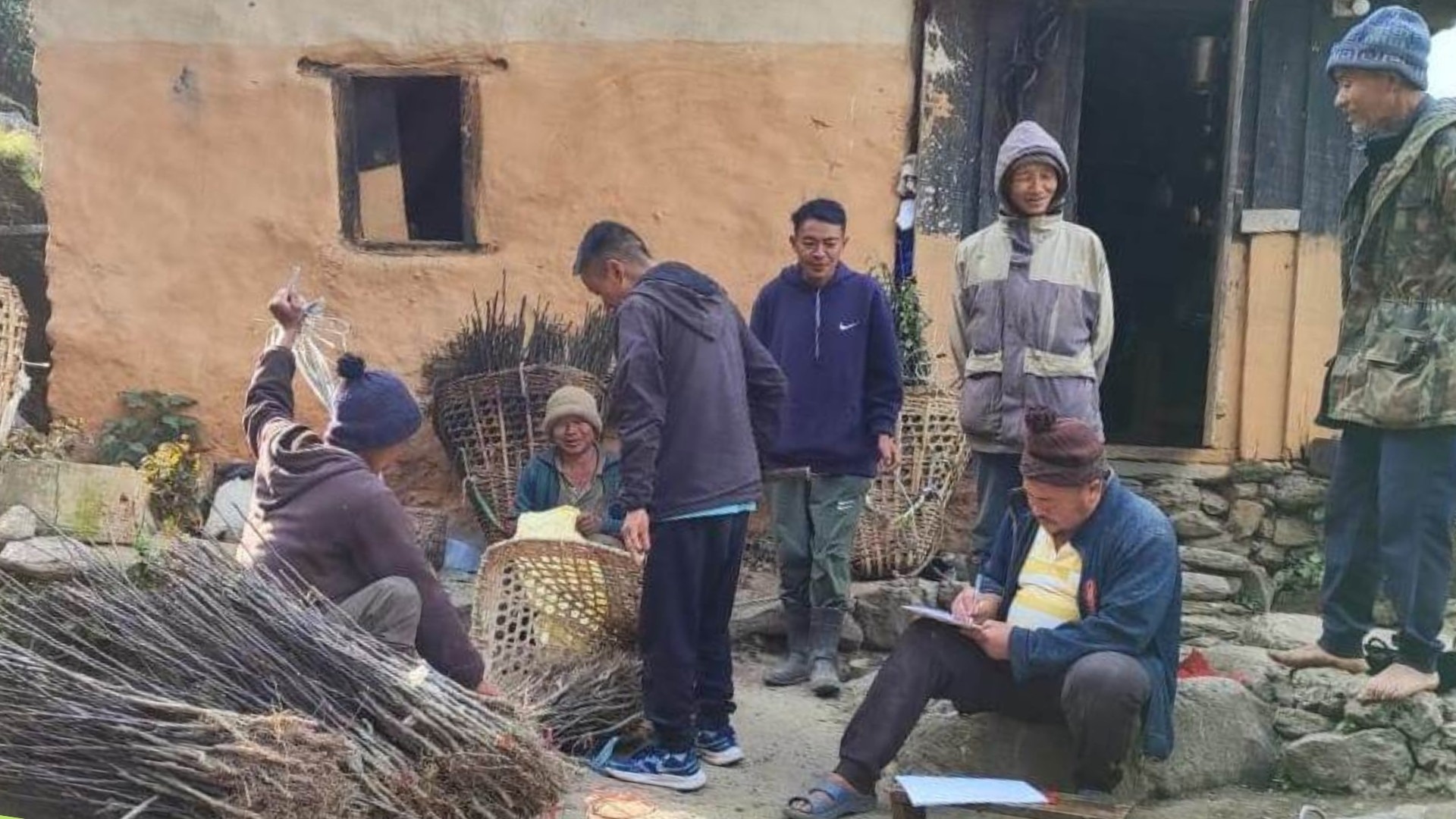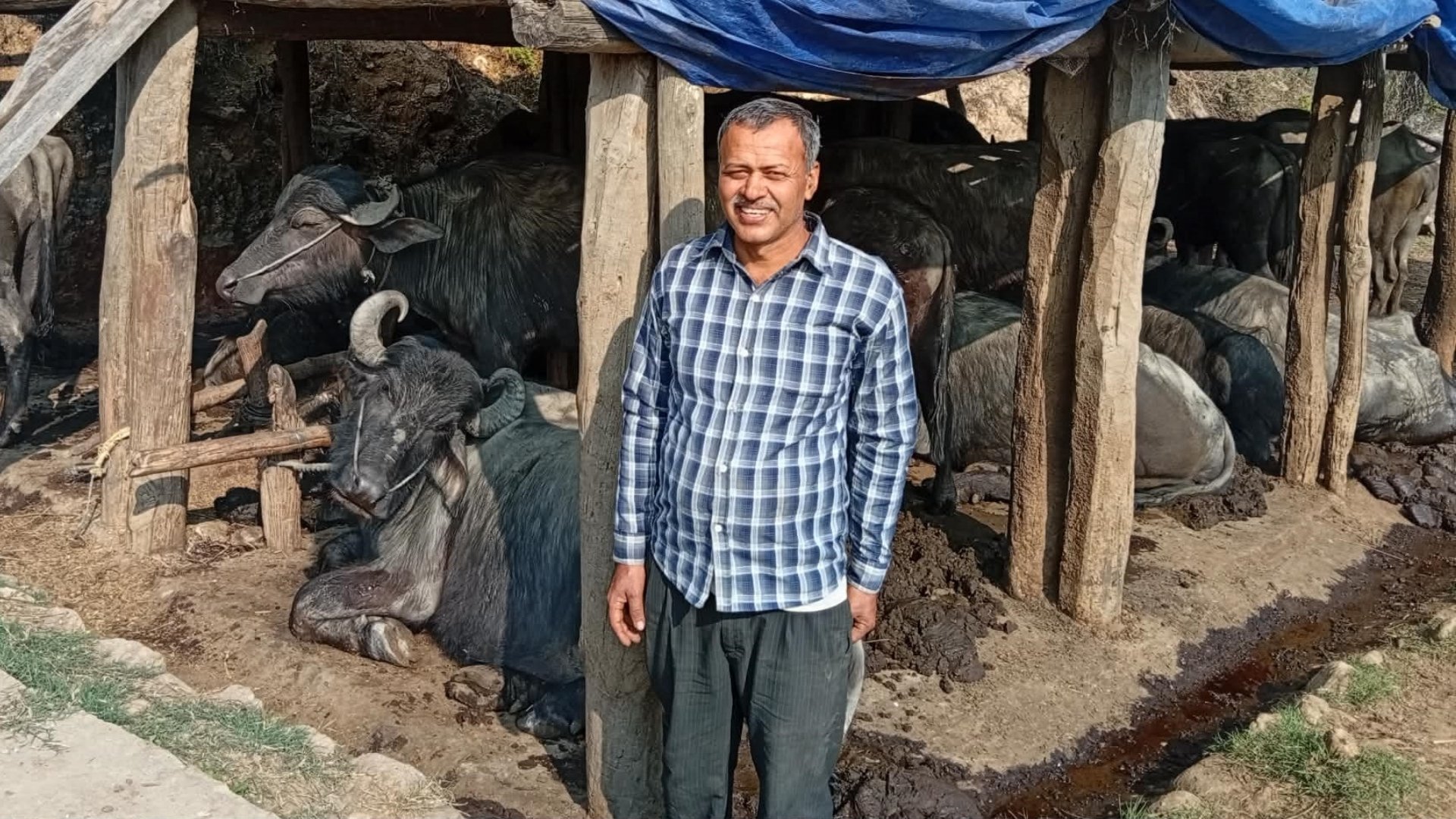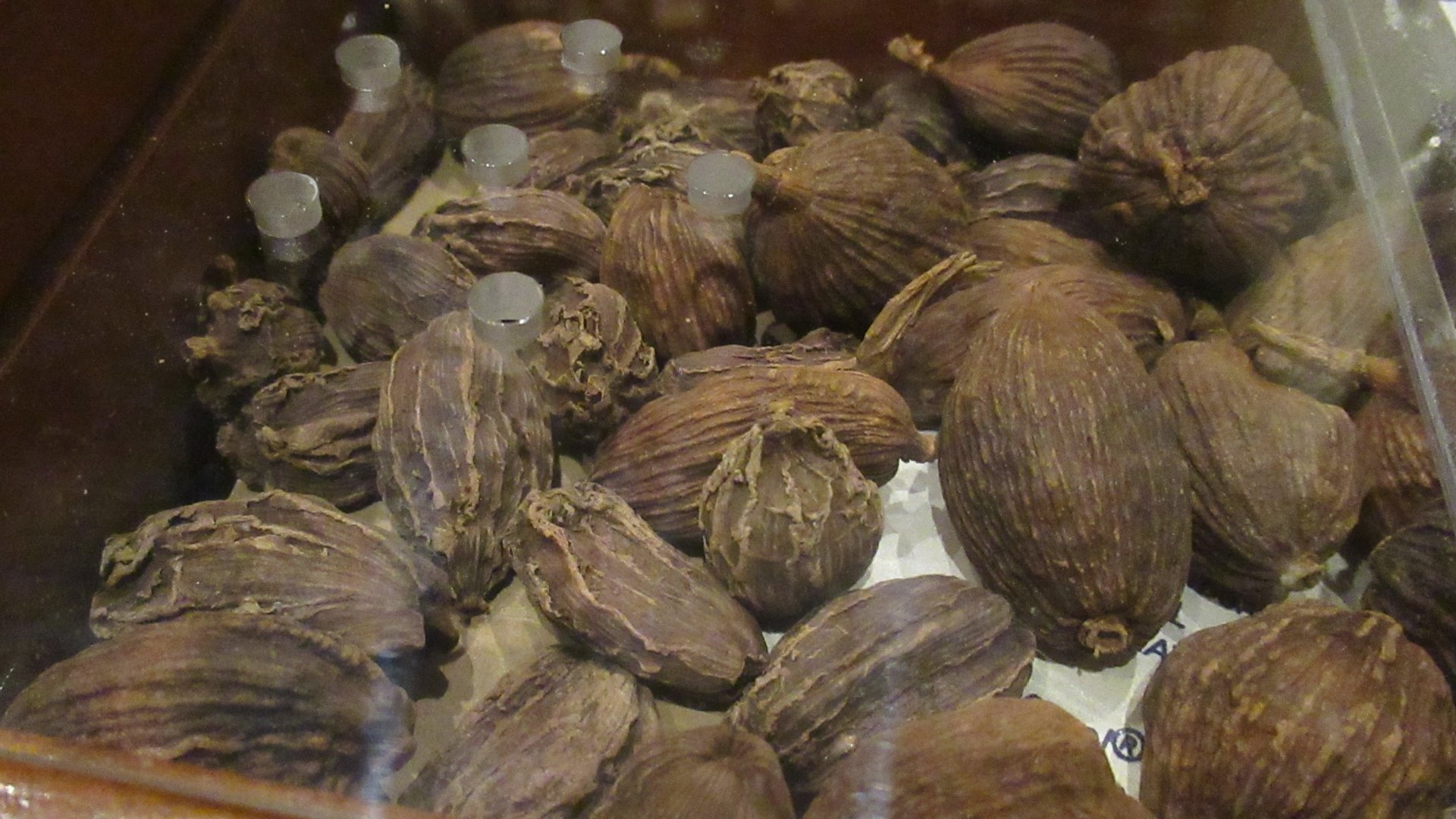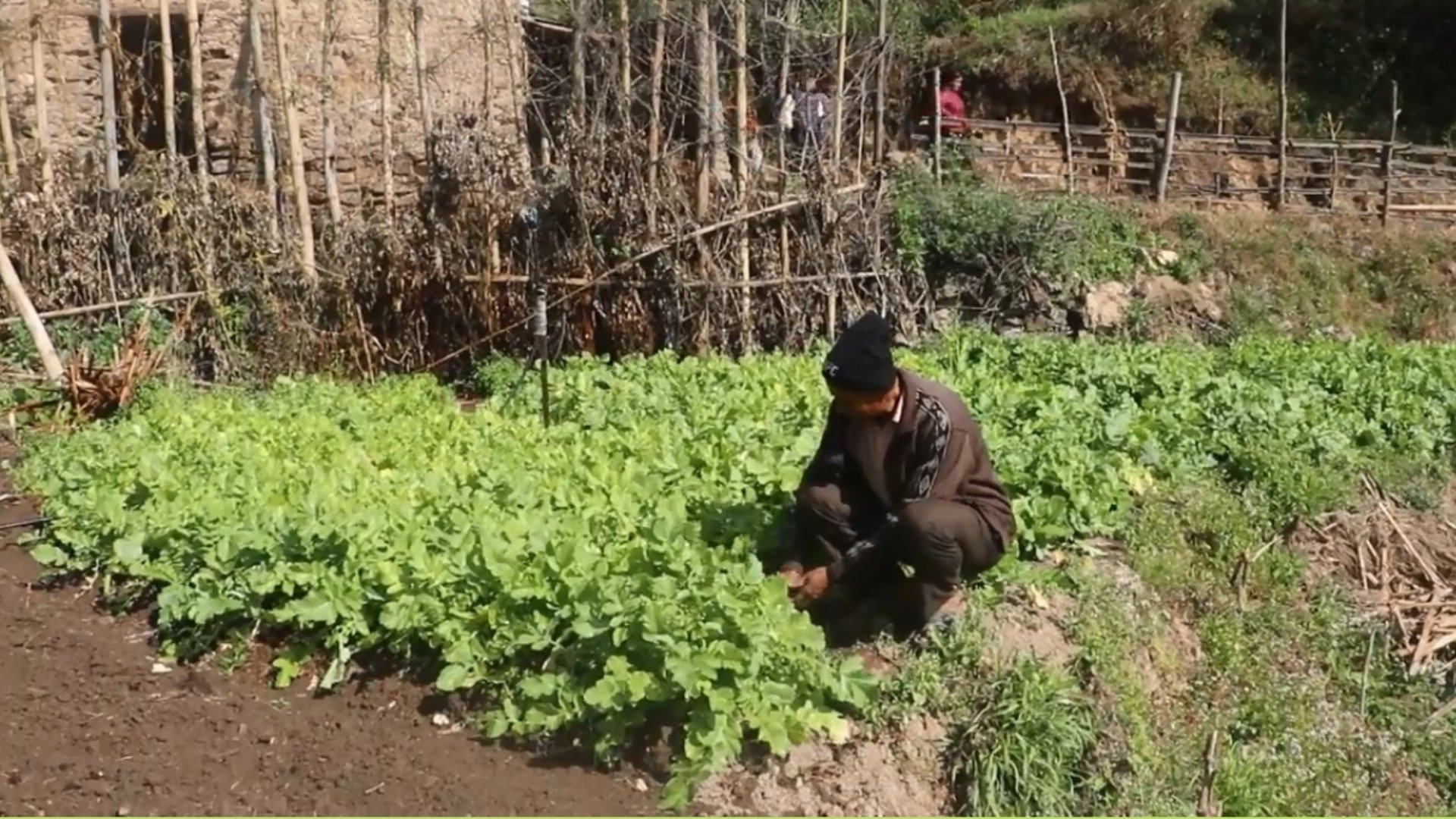Heading down a narrow alley opposite the newly constructed ward office building in Lazimpat’s Nursery Road leads to the premises of a rather peculiarly named eatery for those not acquainted with the Newari language—Basiko Balcha Café.
Aptly reflecting the street’s name, visitors will find the small thirty-nine by twenty feet area decorated with plants of various kinds — from wall creepers to trees of guava, orange and pomelo — their fragrances lingering in the air, lending an earthy freshness to the restaurant’s subdued atmosphere, complemented by the appetizing smell of whichever traditional Newari or continental delicacies that may be being prepared in the kitchen. There’s even a small fish pond.
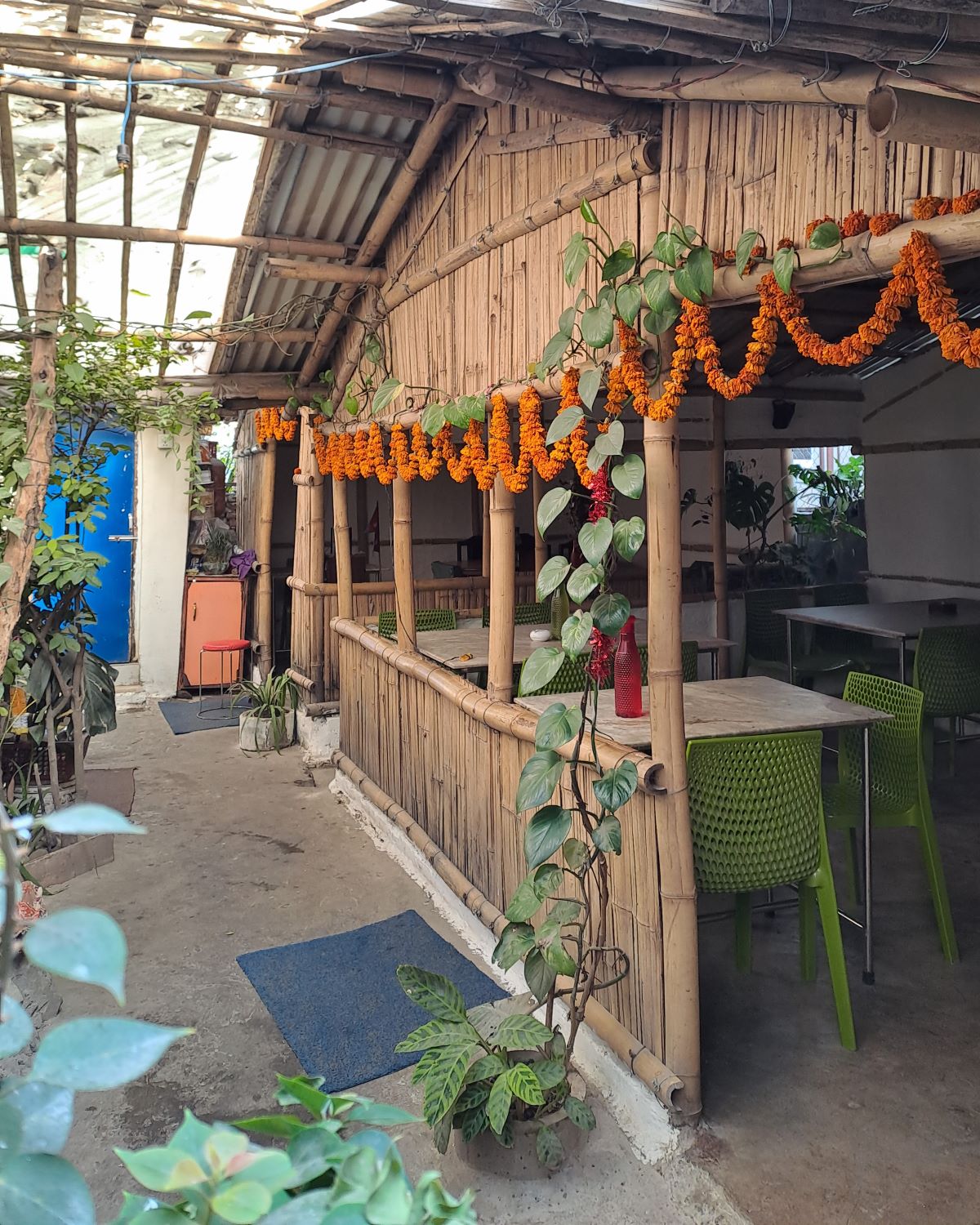
Behind the business are the lovely Maharjan couple, Mr. Dinesh and his wife Mrs. Samita. As part of an ongoing series profiling small businesses, I had the pleasure of interviewing Mr. Maharjan. We discussed his one and a half decade long engagement in farming, his struggles during the trying times of Covid-19 pandemic and the lockdowns, and the story of Basiko Balchha.
Before the place turned into a bustling residential center with its many marts, eateries, embassies and hotels, the Lazimpat in Dinesh’s childhood memory had been farmland, yet untouched by Kathmandu’s urban sprawl. Still referred to by the older residents in the neighboring area of Asan as ‘Basiko’, the café’s name, “Basiko Balchha Cafe” roughly translates to “Lazimpat Cottage Café”.
Established just over a year ago, the café, still in its infancy, is the couple’s first venture into the hospitality sector. Before this, Mr. Maharjan had been a farmer-entrepreneur, managing a farm spread around 23 ropanis of leased land in Kirtipur, producing off-season vegetables in plastic tunnels.
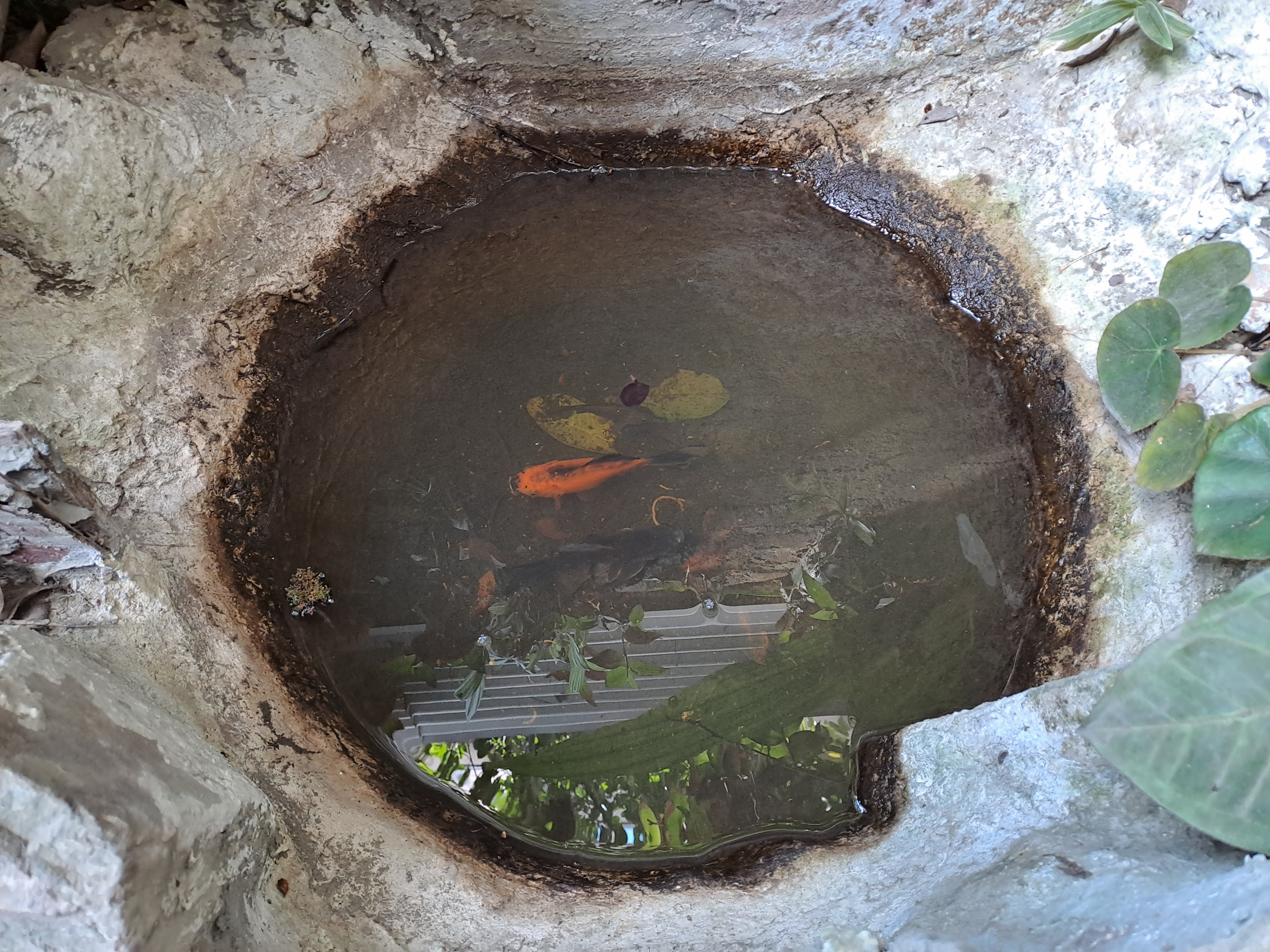
“Even though I was engaged in farming for much of my adult life, my success in farming was unremarkable”, Dinesh laments. Amidst myriad challenges faced during the trying times of Covid-19 pandemic, keeping the farm operational was no longer financially viable, and all its operations were put to a halt in the winter of 2022.
Oblivious to the scale of disruption the pandemic would eventually turn to cause, Mr. Maharjan persevered through the initial months of the lockdown in an effort to stay afloat until things would ‘return back to normal’. He retained his staff, and cleared rent dues even though all farm activities had been halted. However, the pandemic persisted, and all that remained for Mr. Maharjan was a defunct farm — its infrastructures gone to ruins due to years of disuse.
The small plot of land adjoining the Maharjan residence, on which Basiko Balchha stands on had previously been the family’s kitchen garden. Following the farm’s closure, the land presented itself poised to support a hopeful venture in hospitality to the couple.
Construction had already begun for the ward office’s building, and its imminent relocation to their neighborhood guaranteed Mr. Maharjan of a consistent inflow of guests. The convenience and cost effectiveness in running and managing a small-scale, non-capital intensive business right next to their own home inspired greater confidence in this idea.
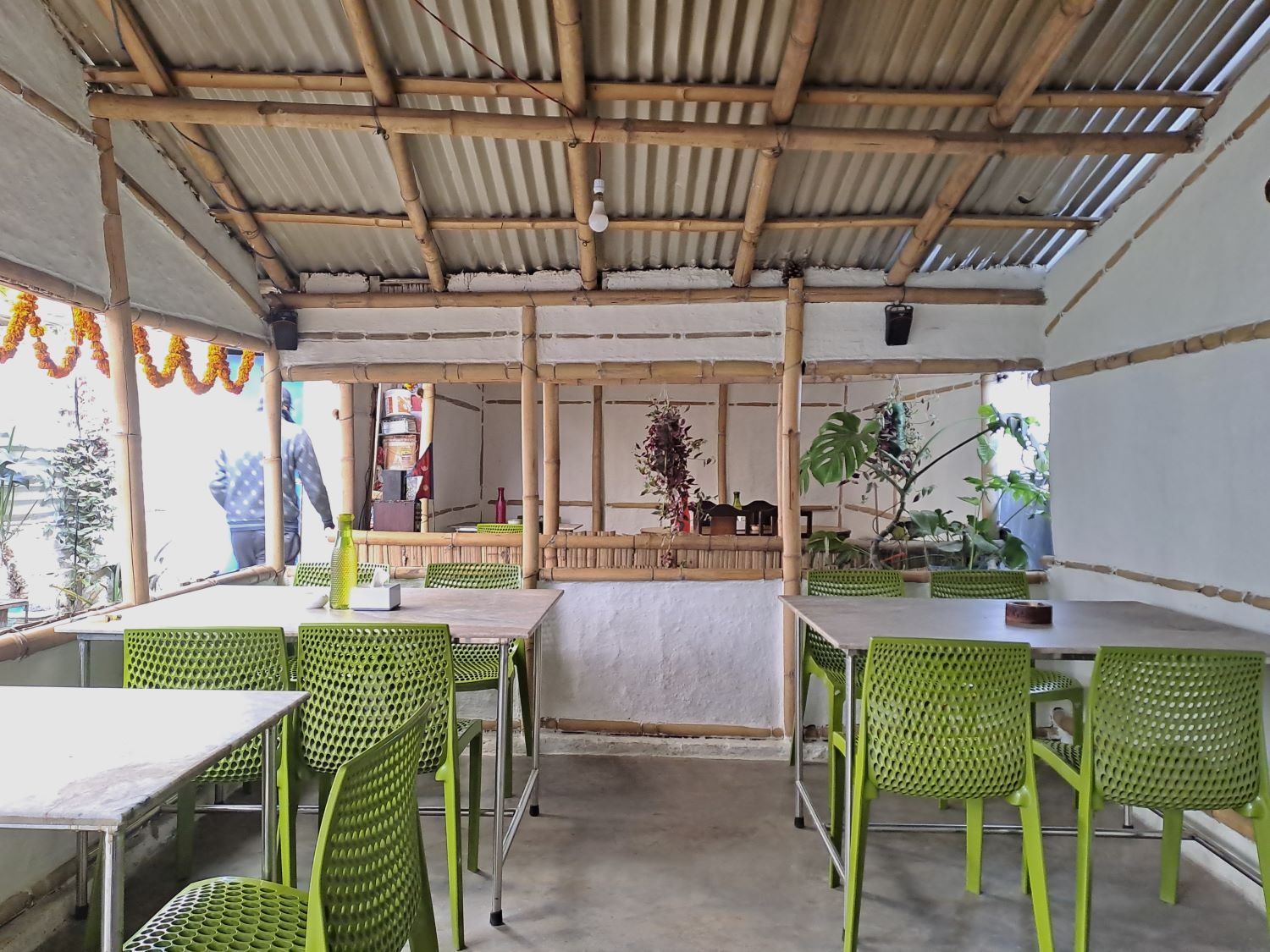
Mr. Maharjan, who had trained as a cook in Jamal’s Hotel Yellow Pagoda in his late teens, shared experiences of his employment for International Security Assistance Force (ISAF), where he was deployed as a food store in-charge in multiple North Atlantic Treaty Organization (NATO) bases in the early 2000s.
Among his responsibilities included having daily meetings with chefs and cooks to plan and prepare meals for a large number of personnel. During this time, his close association with the kitchen staff and active engagement in their work allowed him to learn and hone culinary and kitchen management skills which, more than two decades later, have found their expression.
With experience building tunnels in his farm, Mr. Maharjan took up the construction work. The architect and mason himself, all of Basiko’s structures: the two separate dining areas, kitchen area, and a restroom are the products of his five month long toil. “I didn’t even have anybody to pass me a hammer”, he recalled. One could not miss the glint of pride in his eyes as he spoke to me of this.

Countless hours of hard work and Rs. 13 lakhs (Rupees 1.3 million) in investment later, Basiko Balchha opened its doors in August 2022. Presently, the café’s sales figures have been hovering around the 2.5 lakhs mark per month. “We’re still in trial. At this point, we’re more focused on earning a name for the business.”
His priority has been to establish Basiko Balchha as a provider of healthy, economical food options with sizable portions. “Profits will follow naturally”, he says with a playful laugh.


